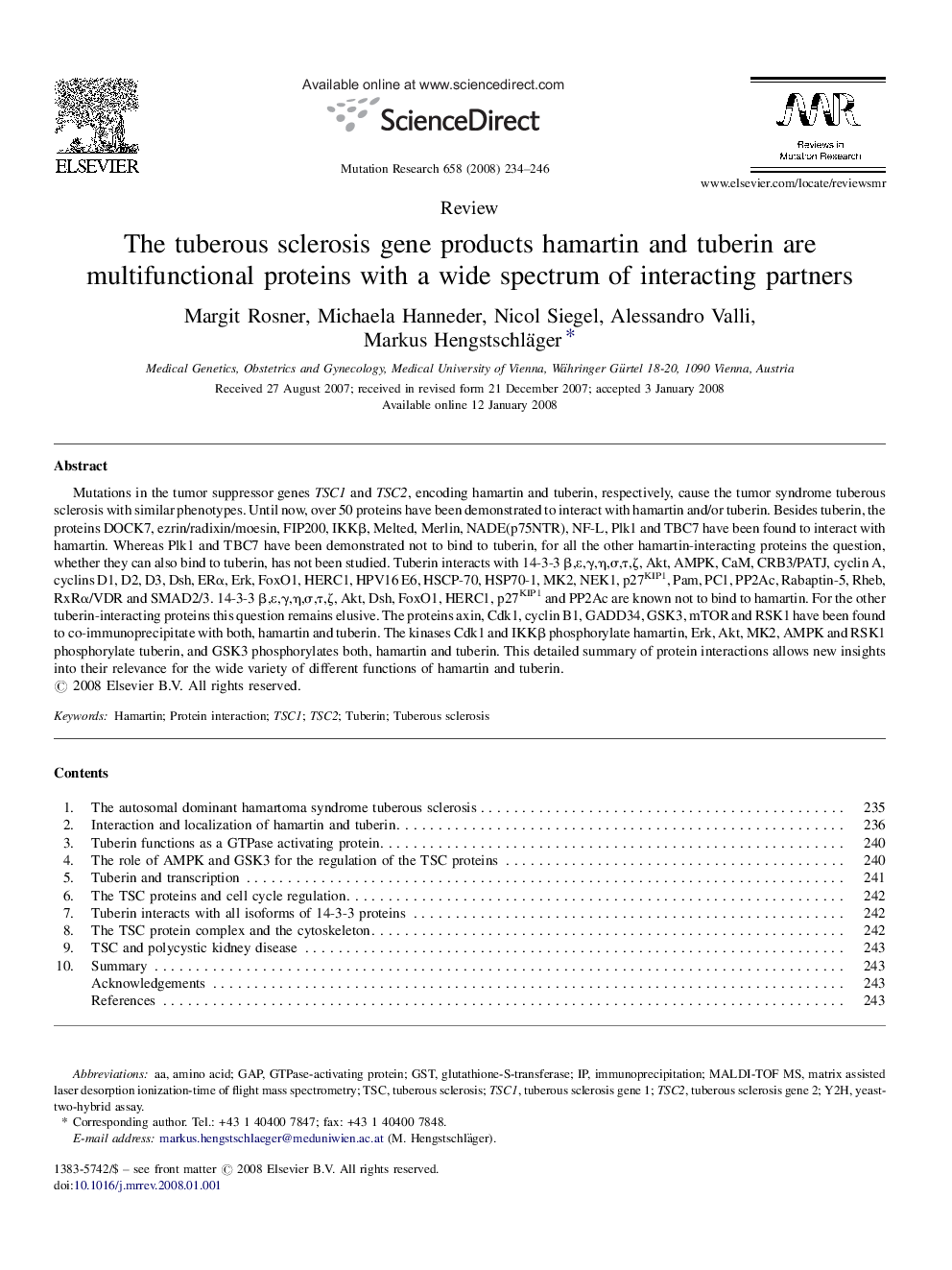| Article ID | Journal | Published Year | Pages | File Type |
|---|---|---|---|---|
| 2149848 | Mutation Research/Reviews in Mutation Research | 2008 | 13 Pages |
Abstract
Mutations in the tumor suppressor genes TSC1 and TSC2, encoding hamartin and tuberin, respectively, cause the tumor syndrome tuberous sclerosis with similar phenotypes. Until now, over 50 proteins have been demonstrated to interact with hamartin and/or tuberin. Besides tuberin, the proteins DOCK7, ezrin/radixin/moesin, FIP200, IKKβ, Melted, Merlin, NADE(p75NTR), NF-L, Plk1 and TBC7 have been found to interact with hamartin. Whereas Plk1 and TBC7 have been demonstrated not to bind to tuberin, for all the other hamartin-interacting proteins the question, whether they can also bind to tuberin, has not been studied. Tuberin interacts with 14-3-3 β,É,γ,η,Ï,Ï,ζ, Akt, AMPK, CaM, CRB3/PATJ, cyclin A, cyclins D1, D2, D3, Dsh, ERα, Erk, FoxO1, HERC1, HPV16 E6, HSCP-70, HSP70-1, MK2, NEK1, p27KIP1, Pam, PC1, PP2Ac, Rabaptin-5, Rheb, RxRα/VDR and SMAD2/3. 14-3-3 β,É,γ,η,Ï,Ï,ζ, Akt, Dsh, FoxO1, HERC1, p27KIP1 and PP2Ac are known not to bind to hamartin. For the other tuberin-interacting proteins this question remains elusive. The proteins axin, Cdk1, cyclin B1, GADD34, GSK3, mTOR and RSK1 have been found to co-immunoprecipitate with both, hamartin and tuberin. The kinases Cdk1 and IKKβ phosphorylate hamartin, Erk, Akt, MK2, AMPK and RSK1 phosphorylate tuberin, and GSK3 phosphorylates both, hamartin and tuberin. This detailed summary of protein interactions allows new insights into their relevance for the wide variety of different functions of hamartin and tuberin.
Keywords
Related Topics
Life Sciences
Biochemistry, Genetics and Molecular Biology
Cancer Research
Authors
Margit Rosner, Michaela Hanneder, Nicol Siegel, Alessandro Valli, Markus Hengstschläger,
